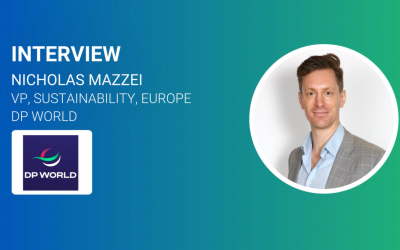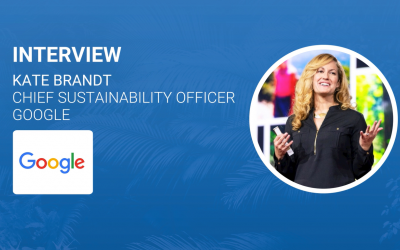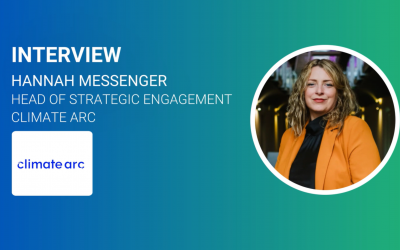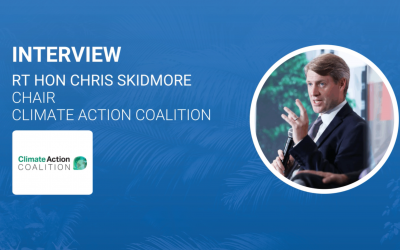Lola Ortiz Sánchez on the actions Madrid are taking to reduce emissions from freight vehicles
Ahead of the Transport Transition Summit, taking place on the 11 & 12 May, Climate Action caught up with Lola Ortiz Sánchez, General Director of Planning and Mobility Infrastructure at City of Madrid, to discuss the actions Madrid are taking to reduce emissions from freight vehicles.
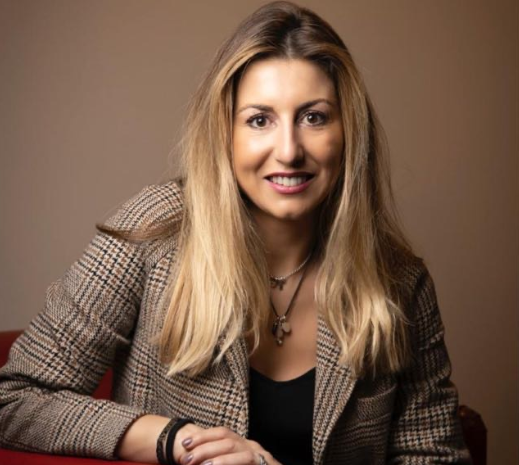
Ahead of the Transport Transition Summit, taking place on the 11 & 12 May, Climate Action caught up with Lola Ortiz Sánchez, General Director of Planning and Mobility Infrastructure at City of Madrid, to discuss the actions Madrid are taking to reduce emissions from freight vehicles.
You're speaking as part of our Transition Month within our Roadmap to COP26. What does COP mean for the transport industry, what do you need from COP and what does a successful COP look like for you?
COP is the transport industry’s most important conference of the year where countries show their ambitions in relation air quality and climate change. In some cases that implies new regulations in relation low emissions zones, new fuel for vehicles, new investment in transforming the transport industry and so on.
COP is a starting line not a finish line to reach a net-zero future by 2050. But, short-term action is just as important as long term net-zero ambitions. In your industry what do you see as the most important short term measures and steps needed to get on track to net-zero in the long term?
In Madrid,we support C40’s “Green and healthy street declaration”. That means we’re undertaking various initiatives including making at least one third of public buses electric; around 680 buses by 2027. Madrid is also going to be a low emissions zone by 2023. Public transport will be the backbone of our mobility system but we’re also developing subsidies to help citizens invest in less pollutant vehicles, and also to subsidise electric bikes, buses and motorcycles. Electrification of parking areas and park and rides is another of our main goals.
In terms of deliveries, we’re working towards ‘zero emissions urban freight’ by helping to develop hydrogen fuel as a real and tangible option for heavy transport and trucking.
In reaching net-zero we must take action this decade, but there are many structural, financial, and policy barriers. Where do you see the greatest friction currently, and how can cross-sector collaboration and public-private partnership help to overcome these barriers?
This year we are implementing zero emission zones in all districts around the city, but we have some problems with citizens. We’re finding that we face extensive opposition to these measures, due to the fact that initially residents lose some on-street parking and delivery vans and freight have more restricted timetables for permitted goods deliveries. Nevertheless, little by little citizens come to terms with these changes because they start to see the benefits; they can enjoy more public space, there is less pollution and less noise etc.
A critical success factor for these types of changes and schemes is having a media campaign to explain the measures and the benefits to citizens before we implement them. This helps reduce the initial tension and opposition.
The City of Madrid is also doing a huge amount to reduce emissions from freight vehicles. Have these policies and strategies raised much controversy at all and if so, how have you brought these stakeholders on board?
Yes, the city of Madrid is working to improve the quality of our air to safeguard public health and to align with the EU Directive. That’s why we have presented a new Air Quality Strategy ‘Madrid360’ that covers a lot of mobility measures. We have consulted with citizens and stakeholders. The business stakeholders have asked the city council for subsidies to able to change their vehicles and we have provided a transition period for this. We have shown some flexibility in relation to adapting vehicle fleets to account for various delays.
We’ve just started working with technology providers to develop an application to improve urban freight delivery in our city, which should reduce both noise and air pollution emissions.
Which other cities has Madrid learnt from in terms of decarbonisation strategies, what lessons can you take from these cities specifically and what learnings can you share in return?
Here in Madrid we can learn a lot for other big European cities such as London and Paris. For example, we would like to learn about the charging schemes that London applies for those entering the city centre; how does it work and how is it administered? In relation to Paris we’re really interested in this concept of the ‘15minute City’ and how they have managed so quickly to develop and roll out new cycle lanes across the city.
We are also interested in the implementation of Park and Rides near city centres and how these can be used to promote public transport and avoid private vehicle use. There’s so much for us to learn from the rest of Europe and further afield.
Lola Ortiz Sánchez is speaking at the Transport Transition Summit on 12 May as part of the Commercialising Zero-Emission Freight session at 10.15 BST. She will be joined by Unilever, IKEA, City of Rotterdam and Smart Freight Centre. Register now to hear more on the work Madrid and other leading European Cities are doing to reduce emissions from freight and delivery vehicles.


